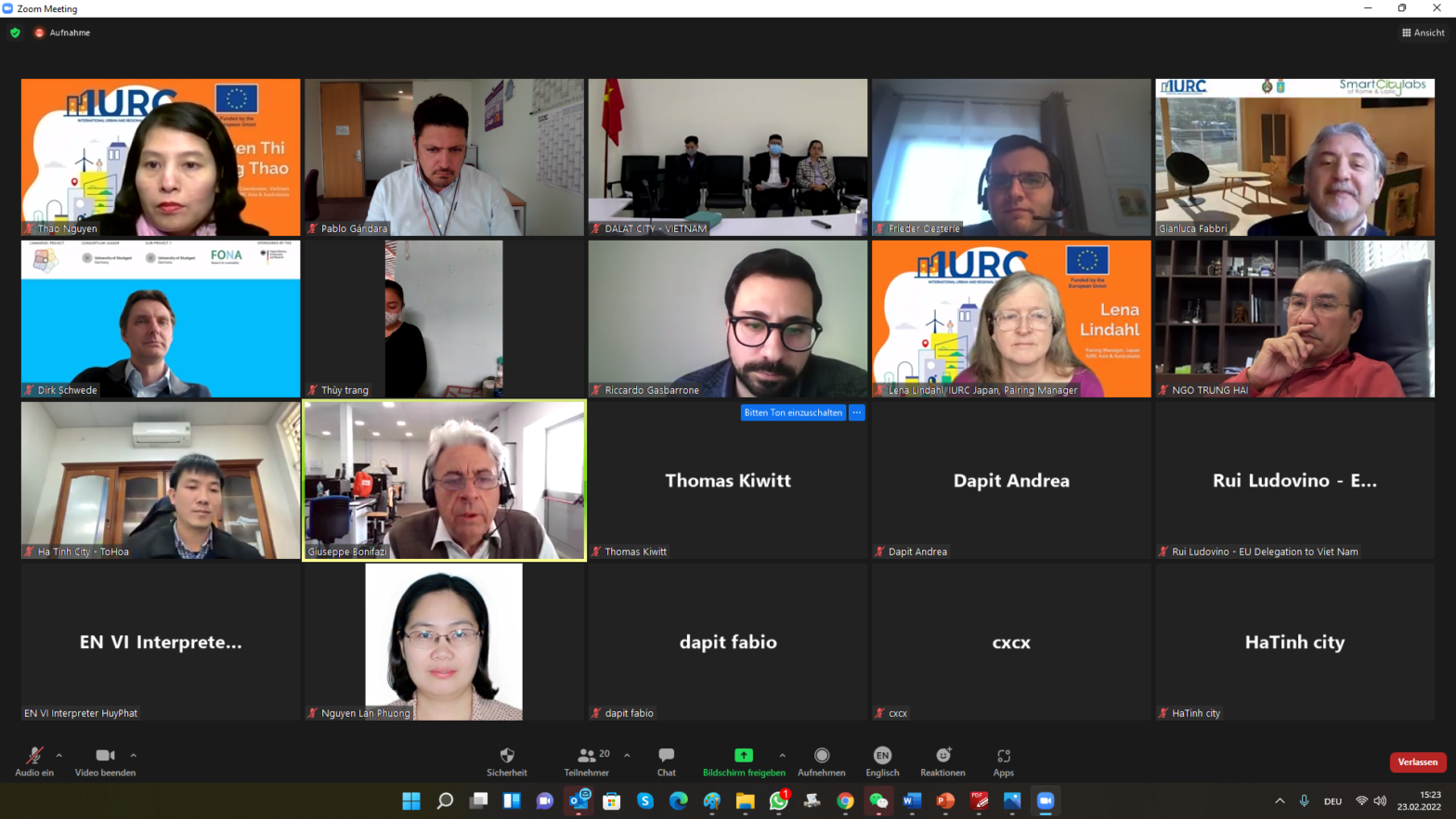Stuttgart, Colleferro/Latina, Da Lat City and Ha Tinh City met on 23 February to share their practices on waste management. The meeting was led by Mr. Pablo Gandara, Team Leader of IURC Asia & Australasia, with the participation of Dr. Rui Ludovino, First Counsellor, Climate Action, Environment, Employment and Social Policies, Delegation of the European Union to Vietnam; and Mr. Ngo Trung Hai, General Secretary, Association of cities of Vietnam.


Stuttgart shared the progress and testing results of the CAMaRSEC Project (Climate-Adapted Material Research for the Socio-Economic Context of Vietnam), which is enabling research and development for sustainable buildings in the socio-economic context of Vietnam; and ReBuMat (German-Vietnamese Collaborative Project on Resource-efficient Construction), whose focus is on sustainable building materials. These research projects are collaborations between the University of Stuttgart and Vietnamese universities and institutes between 2020 and 2023 in the process of climate adaptation in Vietnam.

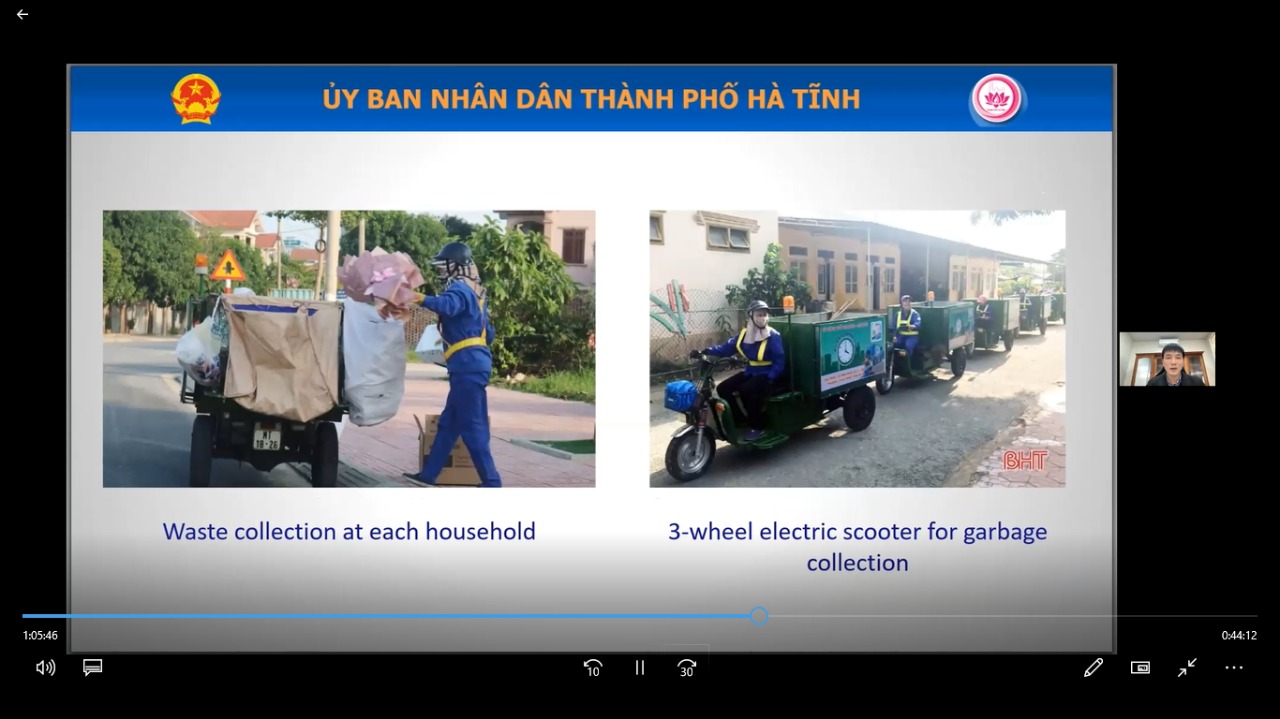
Ha Tinh shared its practices in operating the solid waste management process in alignment with its direction of keeping the city clean, green, beautiful with public participation. In the process of collection and transportation, the city authorities are working closely with residential communities. The fact that electric carts are used in Ha Tinh City for domestic waste collection really impressed the meeting’s participants. Another initiative is the provision of two different bins to residential areas, one for compostable and the other for un-compostable waste. This helps to improve people’s awareness of waste separation at source, resulting in reduced waste discharged. The current at-source separation rate is approximately 40% citywide while the city is planning to replicate the same approach to all residential areas.
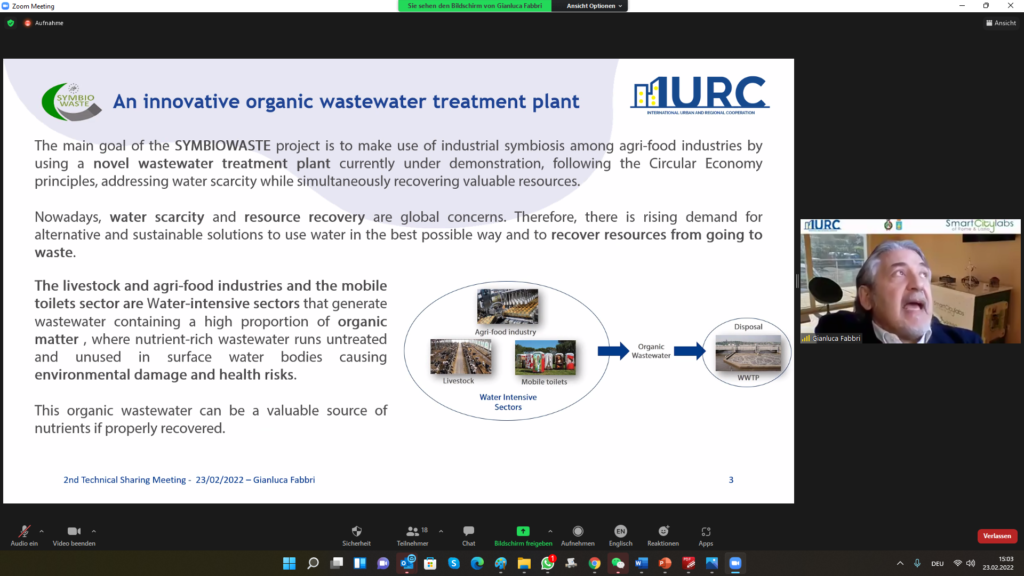


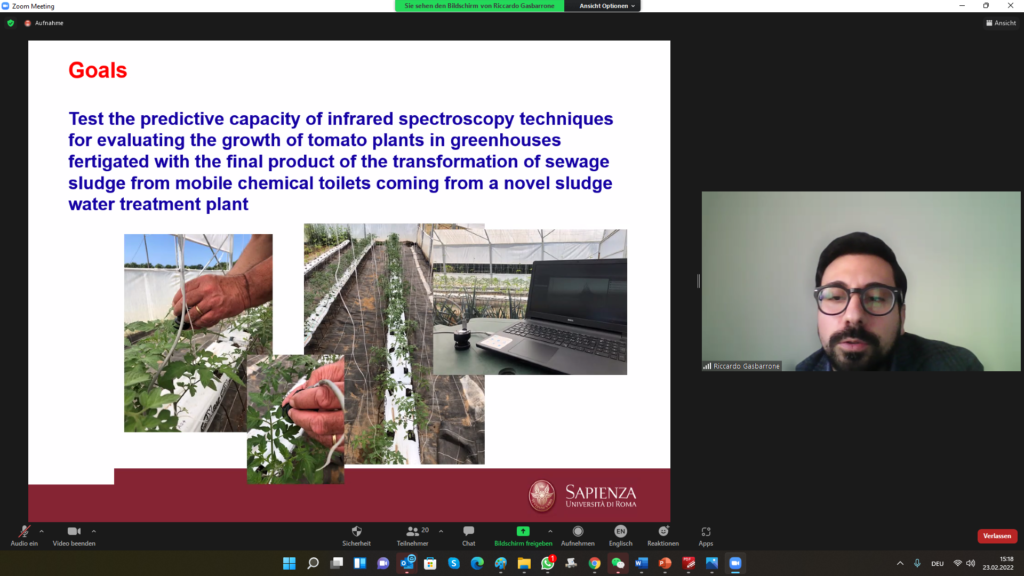
The Colleferro and Latina Functional Area team presented and offered a virtual tour of its innovative organic wastewater treatment plant: the SYMBIOWASTE project, which makes use of industrial symbiosis among agri-food industries by using a novel wastewater treatment plant currently under demonstration. following the Circular Economy principles, the plant addresses the issue of water scarcity while simultaneously recovers valuable resources. Also interesting was Latina’s pilot business model of treating wastewater from public toilets and livestock farms in the region for use at tomato greenhouse farms. This makes the wastewater treatment a close and comprehensive circuit.
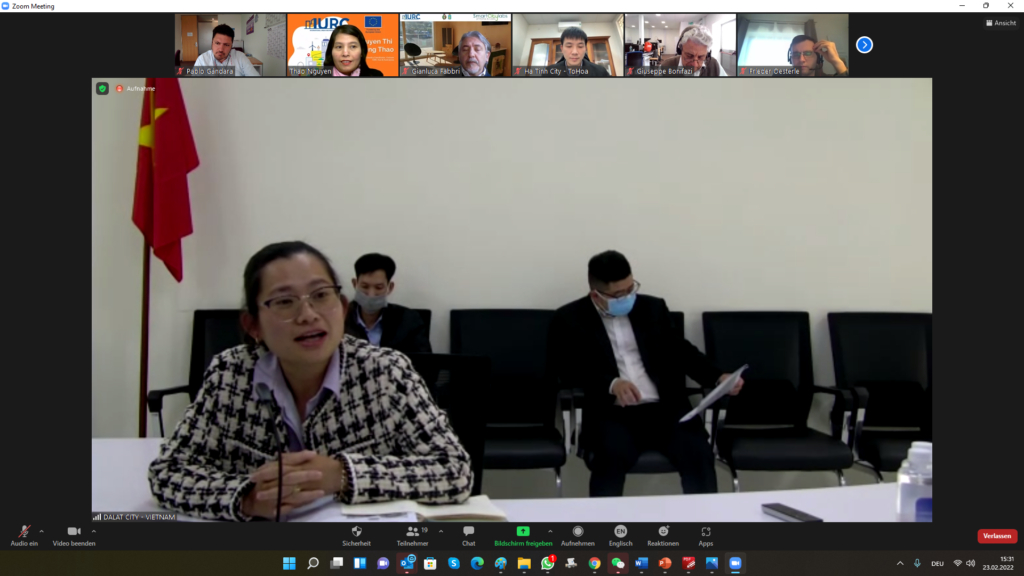
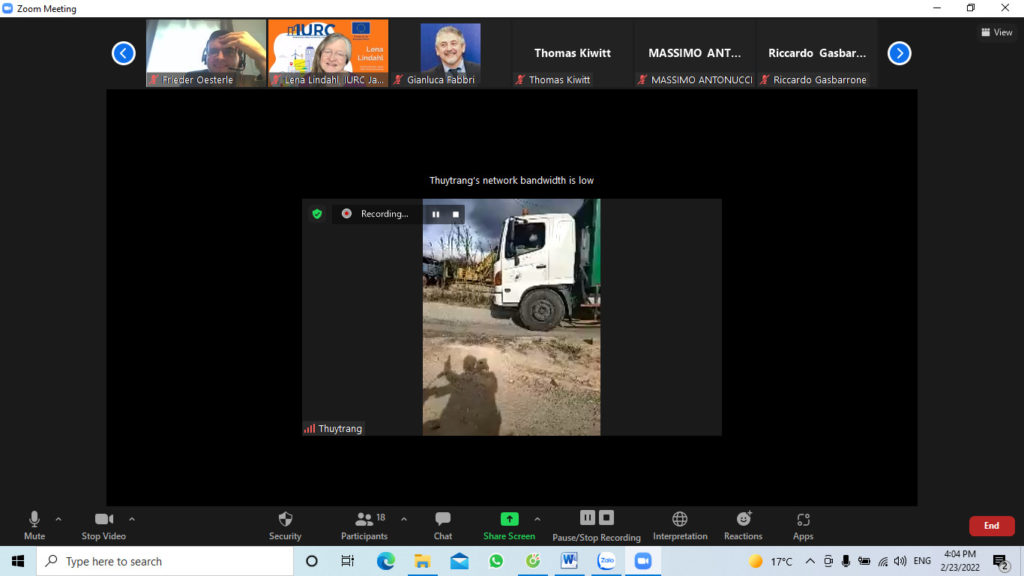
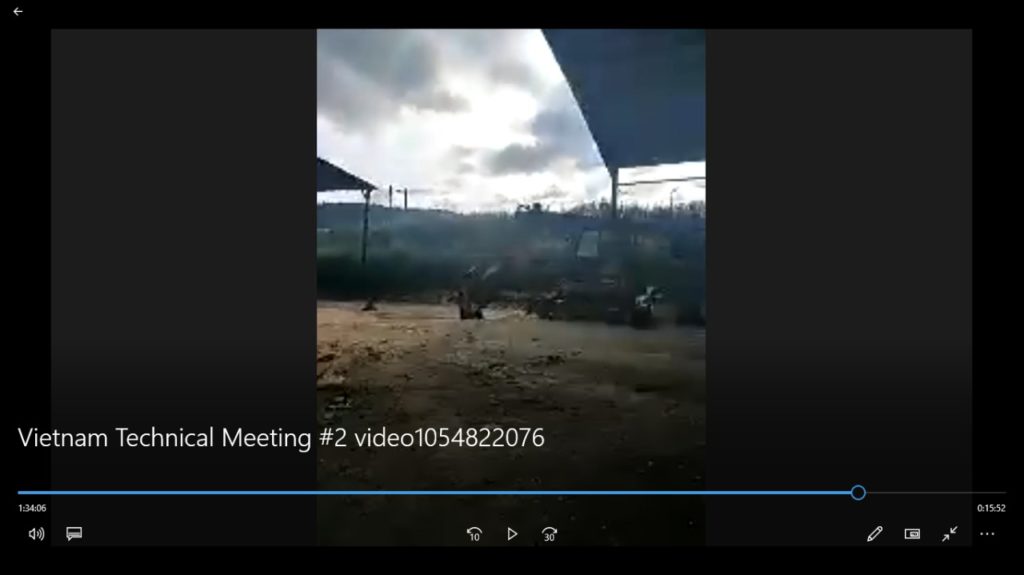
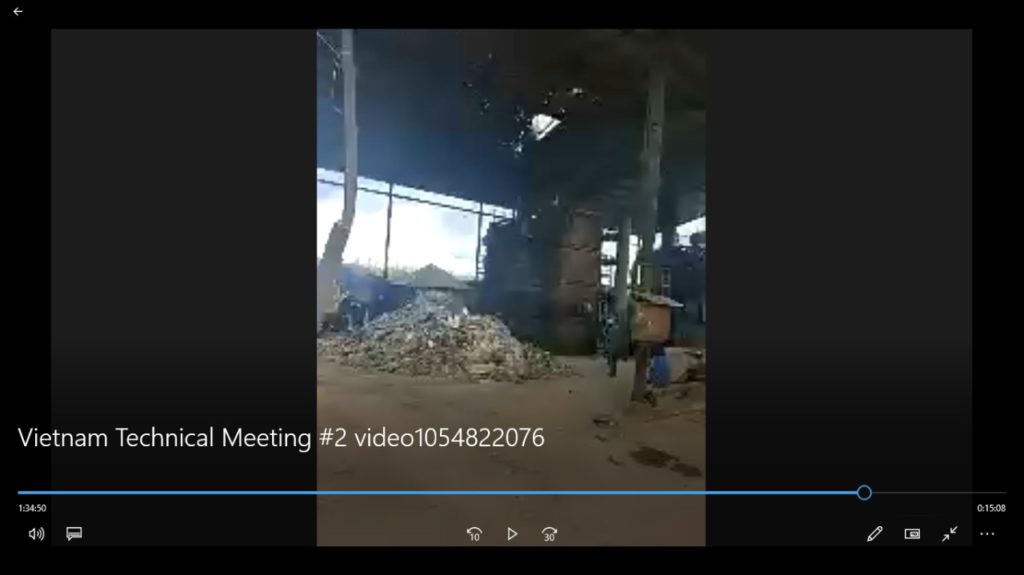
Da Lat City introduced its participatory waste management engaged by the local community and tourists. Da Lat’s economy is led by tourism, services and agriculture. The points learnt from Da Lat City are the different programmes/activities in involving the community and tourists in solid waste management such as “Gifts for Waste”, “Green Sundays”, etc. Another highlight from Da Lat’s sharing was the virtual tour on a scooter to the Da Lat City Solid Waste Treatment Plant. It gave viewers a live impression of the plant, allowing them to experience one of the solid waste treatment routines, from the entrance road to the scaling station and the treatment parts inside the property.
